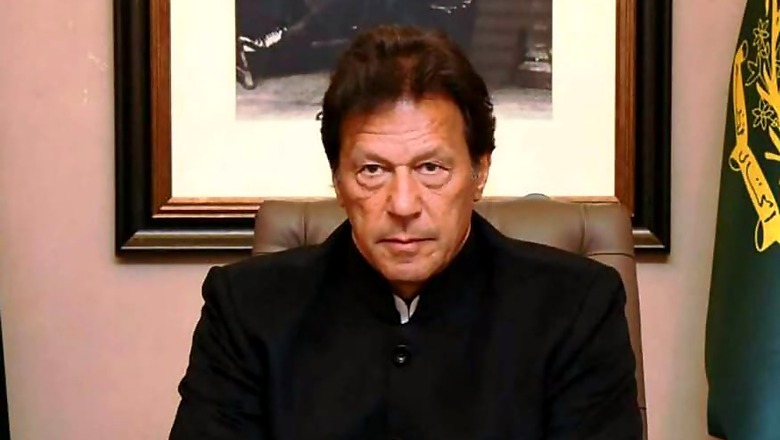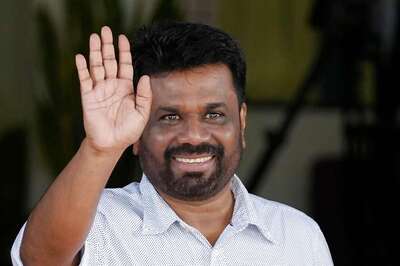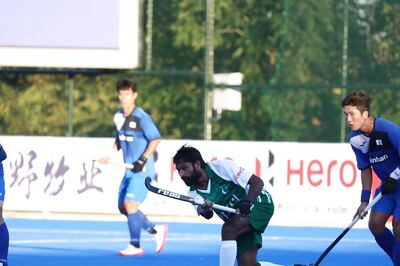
views
Pakistani Prime Minister Imran Khan announced the release of Wing Commander Abhinandan Varthaman, belonging to the Indian Air Force, on Thursday, and called it a peace gesture. But behind the scenes, it is being reported that the international community played a major role in de-escalating the situation, and Pakistan was pressured into releasing the pilot to ease tensions with India, which appeared to be headed into a full-fledged war scenario.
It is being further reported that besides the United States, Pakistan’s partners in the Middle East also played a key role in pushing it to release the Indian pilot.
While the US has had a considerable influence on Pakistan because of its strategic partnership with the country since the time of Cold War and post 9/11, in recent years, the relationship has not remained as strong as it used to be, and it appears that the Middle Eastern partners of both the Americans and Pakistan are acting as a conduit between the two sides.
In the run-up to the current de-escalation, the Saudi foreign minister announced that he will be visiting Islamabad, and the crown prince of UAE Sheikh Mohamed bin Zayed Al Nahyan called up Imran Khan. It is being reported that the leadership of both countries pushed Pakistan for dialogue and then delivered similar messages to the Indian leadership.
Pakistan’s relationship with its Middle Eastern partners is quite old too, and like the US, it has been very transactional.
Countries such as Saudi Arabia, the UAE and other Gulf nations have been crucial in keeping the Pakistani economy afloat, at a number of times, when the country has faced economic crisis in the past. Just recently, the Saudis promised more than $20 billion investments in Pakistan when the Saudi crown prince Mohammad Bin Salman visited the country.
Also, more than four million Pakistanis live in the Middle East and make up Pakistan's largest community abroad. Pakistan heavily relies on remittances from those living abroad, as they send somewhere around 20-22 billion dollars per year back home and a majority of this comes from the Middle East.
But due to this dependency on the Gulf countries, Pakistan has had to bear the brunt of religious discord at home. Besides the economic help through investments, aid, and remittances, there is another kind of money flowing into Pakistan. Seminaries aligned with hardline versions of Sunni Islam are funded by Middle Eastern money, sometimes doled out by the royal regimes in the Gulf, primarily to counter any Iranian influence in the region and any Shia influence, the belief system Iranian Muslims follow.
Pakistan has become a hotbed for proxy war, being led by Saudi Arabia against Iran, but Islamabad ignores this and looks away, perhaps due to its economic dependency on Saudis and their allied partners in the Middle East.
Such religious funding has resulted in further radicalisation of the vulnerable Pakistani population that the state cannot provide for, and which turns to private seminaries to provide them education, food and lodging. Such seminaries inject anti-Shia ideology and those they radicalise end up with militant groups, carrying out terrorist activities inside Iran as accused by Tehran recently when 27 Revolutionary Guards were killed by a Sunni militant group, allegedly living in Pakistan.
Also, given that almost 20 per cent of Pakistan’s Muslim population is Shia, such groups target Shias at home too, and there has been a rise in such killings in the past years, forcing many Shias to flee abroad.
Is the money that Pakistan receives so important that it is willing to sacrifice peace at home and in the region? It is time Pakistan revisits its transactional relationship with its Middle Eastern partners as it is damaging the country’s religious harmony. But there is another reason now to reassess its relations because it appears that the Middle Eastern partners do not even respect the country’s wishes when Pakistan specifically asks them to do.
A recent example of this has been the current Organisation of Islamic Conference (OIC) Foreign Ministers moot where UAE had extended Indian Foreign Minister Sushma Swaraj an invitation to attend, even though India is not a member. Pakistan, which is a founding member of the OIC, demanded that India not be part of this meeting but its Gulf partner went ahead as per plan. Pakistan has ended up boycotting the meeting, which has been severely criticised at home as a failure in diplomacy and is being termed as further isolation of the country at an important international forum.
(The author is a Pakistani journalist living in exile in France. He tweets @TahaSSiddiqui. Views are personal)




















Comments
0 comment